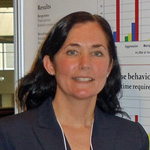
About this course
Imagine loving someone, having children with that person, and then realizing that you’ve gotten yourself involved in an abusive relationship. Imagine suspecting that your partner, the mother or father of your children, has a personality disorder — and then learning that your children have a genetic risk for personality disorders.
Imagine this person is your client. What do you do?
This four-part webinar, Overcoming Genetic Risk for Externalizing Disorders, is designed to help you help your client. The webinars explains how childhood and adolescent externalizing disorders develop. You’ll learn about genetic risk. You’ll learn how environmental factors — from parenting to siblings to the child’s friends — interact with genetic endowment to promote or inhibit externalizing disorders. Most importantly, you’ll learn strategies that parents can use to help their children grow up healthy and happy, even if they were born with a risk for disorder.
Part 1: Externalizing disorders of childhood and adulthood, including ADHD, conduct disorder, antisocial personality disorder and psychopathy
Part 2: What genetic research says about behavior and the risk of developing externalizing disorders
Part 3: How the environment, including parenting, siblings and peers, affects the development of externalizing disorders in children
Part 4: Brain systems, social learning, and using the Inner Triangle to immunize children against externalizing disorders
Highlights:
- Diagnostic criteria for childhood externalizing disorders — including ADHD, oppositional defiant disorder, conduct disorder and substance use disorders.
- Results of genetic and family research studies about the heritability of adult antisocial, narcissistic and borderline personality disorders, and psychopathy.
- How parenting and other childhood experiences increase or decrease an at-risk child’s development of externalizing disorders.
- Best parenting strategies to counteract genetic traits children may have inherited that predispose them to developing externalizing disorders.
- Three core concepts of child development, and how to strengthen them so children can grow into healthy, productive adults.
About the instructor
 Liane J. Leedom, M.D., is a psychiatrist and an associate professor of counseling and psychology at the University of Bridgeport. She is author of Just Like His Father? A Guide to Overcoming Your Child’s Genetic Connection to Antisocial Behavior, Addiction and ADHD, and Women Who Love Psychopaths: Investigating the Relationships of Inevitable Harm. She is also author of multiple peer-reviewed studies, including The Problem of Parental Psychopathy, and Did He Ever Love Me? A Qualitative Study of Life with a Psychopathic Husband.
Liane J. Leedom, M.D., is a psychiatrist and an associate professor of counseling and psychology at the University of Bridgeport. She is author of Just Like His Father? A Guide to Overcoming Your Child’s Genetic Connection to Antisocial Behavior, Addiction and ADHD, and Women Who Love Psychopaths: Investigating the Relationships of Inevitable Harm. She is also author of multiple peer-reviewed studies, including The Problem of Parental Psychopathy, and Did He Ever Love Me? A Qualitative Study of Life with a Psychopathic Husband.
In addition to her university research and teaching, Dr. Leedom is currently in private practice as a psychiatrist. She trained in medicine at the University of California, Los Angeles, and at the University of Southern California, Los Angeles. She previously served on the medical staff of several Connecticut facilities, including St. Vincent’s Medical Center, Hall-Brooke Behavioral Health Services, the Hospital of St. Raphael and the Center for Optimum Care.
Cost and credits
The cost for this course is only $100 for 4 hours of instruction. Once you purchase the course, you can view it as often as you want. There is no expiration date.
This course meets the education standards of psychology and counseling professional associations. Contact your professional association to claim credits.
No commercial support was provided to Lovefraud Continuing Education or the instructor for this program.
Learning objectives
Part 1: Externalizing disorders of childhood and adulthood, including ADHD, conduct disorder, antisocial personality disorder and psychopathy
Learning objectives:
- Name and describe externalizing disorders of childhood and adolescence, including attention deficit/hyperactivity disorder, conduct disorder, oppositional defiant disorder, and substance use disorders.
- Compare the diagnostic criteria for antisocial personality disorder and psychopathy.
- Describe human social behavioral systems and how they develop.
- Describe the impact of parental externalizing disorders on co-parents and children.
- Identify the risks to children of exposure to psychopathic parents.
Part 1 Program agenda
Instruction — 55 minutes
- Externalizing disorders of childhood and adolescence
- Attention Deficit Hyperactivity Disorder
- Diagnostic Changes DSM IVtr to DSM5
- Oppositional Defiant Disorder
- Conduct Disorder
- Conduct Disorder: DSM IVtr to DSM5
- Attention Deficit Hyperactivity Disorder
- Externalizing disorders of adulthood
- Externalizing disorders across the lifespan
- Diagnosis of psychopathic personality traits and categorical psychopathy
- Comparison between DSM and Psychopathy Checklist Revised
- Psychopathy: Facets and factors
- Psychopathy: Developmental Continuity
- Primer on social behavior systems
- Psychopathy and social behavioral systems
- Psychopathy and its impact on co-parents and children
- How do psychopathic men and women become parents?
- Psychopathy and its impact on co-parents and children
- Exposure to the psychopathic parent: Risks to children
Questions and answers —5 minutes
Part 2: What genetic research says about behavior and the risk of developing externalizing disorders
Learning objectives:
- Explain the development of externalizing behavior in children and young adults.
- Discuss how to interpret the results of genetic studies.
- Describe the results of studies of genetic risk for externalizing disorders.
- Explain phenotypic traits and personality traits associated with externalizing disorders.
Identify guidelines for talking to clients about genetic risk for externalizing disorders.
Part 2 Program Agenda
Instruction — 55 minutes
- Prevention of externalizing disorders — what should clients know?
- Development of externalizing behavior
- Early adult onset of antisocial personality disorder
- How do we study the genetics of behavior?
- Genetics of externalizing disorders
- Family studies of externalizing disorders
- Comorbidity in adults with externalizing disorders
- Adoption study results
- Twin studies enable estimates of heritability
- Link between psychopathic personality traits and antisocial behavior
- What do the data mean for clinical practice?
- The externalizing phenotype
- Heart rate as a marker for externalizing risk
- Reward deficiency syndrome
- Specific genes associated with externalizing disorders
- Genetics of executive function
- Personality traits associated with externalizing disorders
- Big 5 personality traits and the Dark Triad
- Emotional dysregulation and externalizing disorders
- Hostile attributions and aggression
- Callous unemotional traits
- Talking to clients about genetics
Questions and answers —5 minutes
Part 3: How the environment, including parenting, siblings and peers, affects the development of externalizing disorders in children
Learning objectives:
- Discuss environmental factors that influence the development of the externalizing phenotype in children and young adults.
- Explain the interaction between genetic and environmental effects in the development of externalizing disorders in children and young adults.
- Explain how parenting behavior influences the development of externalizing disorders in at-risk children and young adults.
- Discuss how genes affect the choices that at-risk children and young adults make in affiliating with peers, and how those choices impact the development of externalizing disorders.
- Assess environmental and genetic risk in at-risk children.
Part 3 Program Agenda
Instruction — 55 minutes
- Prevention of externalizing disorders – what should clients know?
- What about environment?
- Non-shared environment
- Documented gene-environment effects
- Exposure to the psychopathic parent: risks to children
- Documented gene-environment effects: time spent with antisocial fathers
- Maternal gene-environment effects
- Parenting variables associated with externalizing disorders
- Harsh discipline or authoritarian parenting
- Lack of warmth vs. warmth
- Attachment to parent or relationship quality
- Neglect and low monitoring
- Discipline and delinquency
- Abuse and risk
- Parenting education: Practical considerations
- Children with externalizing disorders evoke negative parenting
- Evocative gene-environment interactions
- Antisocial peers
- Antisocial siblings
- Assortative mating
- Parenting while recovering from trauma
Questions and answers —5 minutes
Part 4: Brain systems, social learning, and using the Inner Triangle to immunize children against externalizing disorders
Learning objectives:
- Explain the two brain systems that mediate behavior.
- Discuss three methods that children use to learn from adults.
- Use three core child development concepts to explain the interaction between genetic and environmental risks for externalizing disorders.
- Describe how teen substance use enhances risk for future substance dependence.
- Summarize how to teach parents to mitigate the risk of a child developing an externalizing disorder.
Part 4 Program Agenda
Instruction — 55 minutes
- Parenting education in 2016
- Brain systems that mediate behavior
- Attachment
- Caregiving
- Dominance
- Sexual system
- Why is the behavioral systems perspective important?
- How does social learning happen?
- The Inner Triangle
- Ability to love
- Power focus impairs ability to love
- What parents can do to enhance ability to love
- Experiences that impair a child’s ability to love
- Impulse control
- Importance of parents in development of impulse control
- Fearlessness
- Experiences that help a child’s impulse control
- Experiences that hamper life balance
- Sexuality and impulse control
- Substance use and at-risk teens
- Moral reasoning
- Moral reasoning to immunize against externalizing disorders
- Ability to love
- Positive parenting is proactive
Questions and answers —5 minutes
Risks and Limitations
- The accuracy and utility of the statements included in this presentation are based on referenced materials from reliable sources that are accessible and obtainable by all.
- The limitation of the content presented herein is that the results of execution have not been measured, therefore, expectation of outcome is not predictable.
- It is presumed that professionals executing the guidelines presented herein will apply such holding to the precise standards of their professional code of ethics, to reduce risk of ethical violations. As in all therapeutic interventions that may provoke emotional triggering, the professional may be required to perform risk assessment for suicidality, homicidality or other incident requiring emergency psychiatric services.
Here’s a preview of this course:
Externalizing disorders in children, such as ADHD, oppositional defiant disorder, and conduct disorder, may be precursors to antisocial personality disorder and psychopathy as adults. In this course, you’ll learn how to help parents help their children who have genetic risk for personality disorders.
Customer reviews
Add your review — click and scroll down
Overcoming Children’s Genetic Risk for Externalizing Disorders – $100


I got important questions answered